Charities like The Felix Project are already feeding schoolchildren – but we need help
Help the Hungry: Governments do not have the expertise to deal with the hunger crisis – they must give proper financial support to the organisations that do
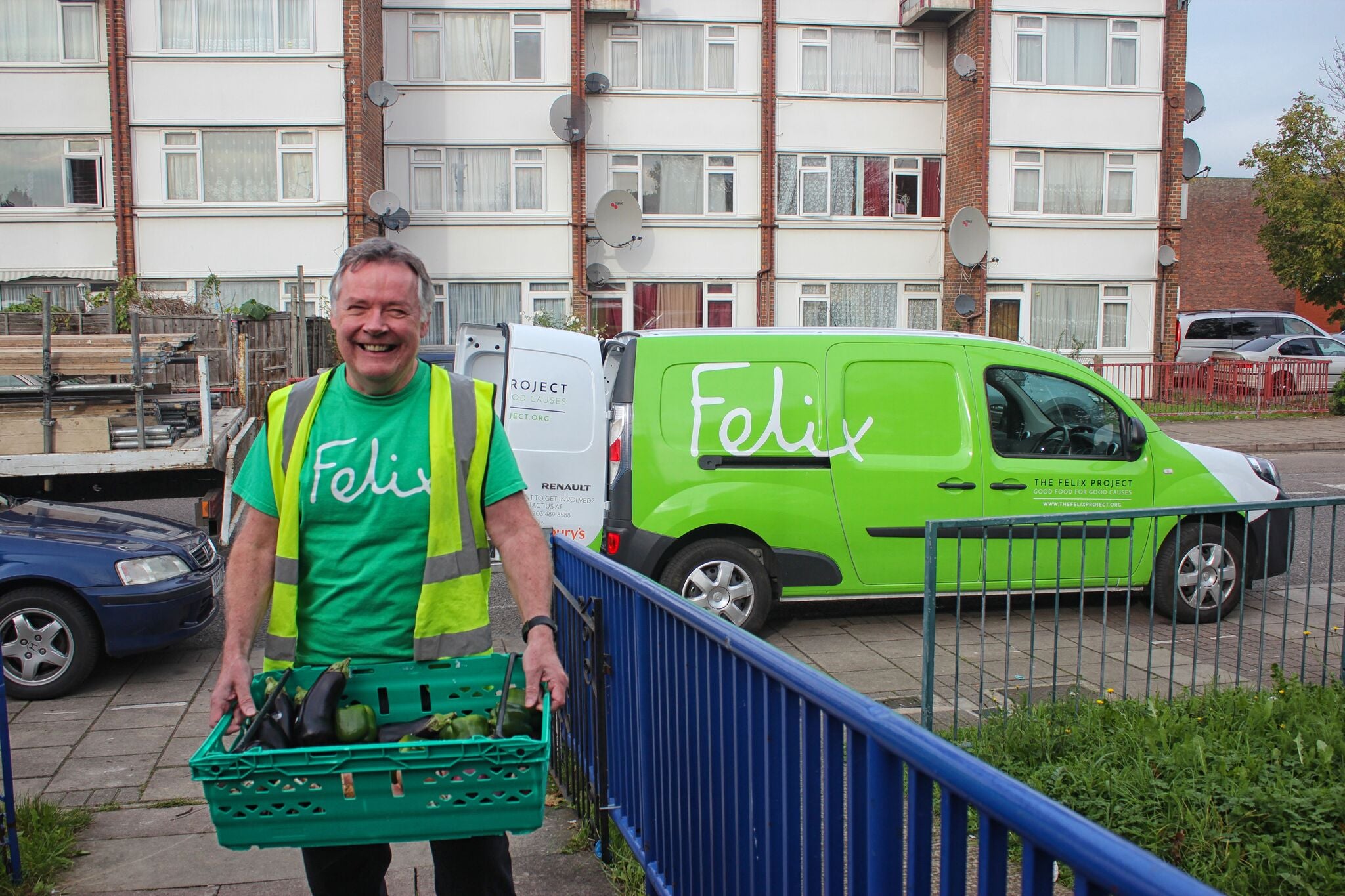
Your support helps us to tell the story
From reproductive rights to climate change to Big Tech, The Independent is on the ground when the story is developing. Whether it's investigating the financials of Elon Musk's pro-Trump PAC or producing our latest documentary, 'The A Word', which shines a light on the American women fighting for reproductive rights, we know how important it is to parse out the facts from the messaging.
At such a critical moment in US history, we need reporters on the ground. Your donation allows us to keep sending journalists to speak to both sides of the story.
The Independent is trusted by Americans across the entire political spectrum. And unlike many other quality news outlets, we choose not to lock Americans out of our reporting and analysis with paywalls. We believe quality journalism should be available to everyone, paid for by those who can afford it.
Your support makes all the difference.At some point in the last week the government will have recognised that it has been backed into a corner by Marcus Rashford, from which there is only one way out. It was an epic mismatch.
On one side a government seen as out of touch with ordinary people. On the other a charismatic, young Lone Ranger with popular opinion behind him and first-hand experience on his side. You don’t argue about hungry children. You just don’t. Free school meals must be extended to the holidays – and they will.
Yet while government action on this issue is necessary, it is not sufficient. Over the weekend I found myself mesmerised on social media by the momentum of #ENDFOODPOVERTYNOW, and in particular by the mapping of community responses across the whole of England.
Hundreds of local councils, charities, cafes, pubs, garden centres and social kitchens in Wakefield, Slough, Southport, Leamington are on the march – so many places I’d heard of and so many I hadn’t. But the free school meals map looks to me like a lopsided and uncoordinated patchwork of people power, reminiscent of the early response to the Covid-19-related hunger crisis earlier this year.
This impressive and heartwarming movement will not provide a definitive solution to poverty and hunger, especially for children, despite unleashing an extraordinary outpouring of compassion, that has been compared to the mobilisation of small ships to Dunkirk in 1940.
Half-term will be over at the weekend and initial enthusiasms will fade. But then what? Our experience at The Felix Project of responding to the hunger crisis which followed the outbreak of the coronavirus pandemic has shown us clearly the value of an organised and coordinated response.
Together with two other food redistribution charities, FareShare and City Harvest, in April we divided up the 32 London boroughs between us and delivered a coordinated and highly effective response to mass food hubs in each of the boroughs.
Whereas in early March Felix was distributing the equivalent of 20,000 meals a day to Londoners across the city, by Christmas we expect that number to have increased to 100,000 meals per day.
We have a special focus on schoolchildren and deliver food to them and their families in both term time and throughout school holidays. As well as the 400 frontline charities we supply, we also operate a supply network in 120 schools in some of the poorest parts of London. So we have built up a good knowledge of what is needed and where.
During the half-term break the Felix Project will help provide 25,000 free meals to children using food that would otherwise be wasted. To do so we will be working with more than 80 school holiday programmes.
But in the early stages of the Covid-19 response we saw duplication of effort, misdirected and wasted meals, as eager newcomers rushed to prepare and deliver meals to different groups across the city.
Much of this new effort, for example, was focused on NHS workers and some estimates indicate massive oversupply of this group of workers, who were mostly well able to feed themselves, at a sudden loss to other deserving groups of people in real need, including the homeless, as food and funding was diverted.
So there are questions. Will this new initiative reach all the kids who need food? Will any of the food go to waste because of the lack of an established and organised distribution network? What arrangements need to be put in place for the longer Christmas school break and next year? And who else apart from children is struggling to secure the food they need?
One thing is clear to us. The role of any government in this situation is limited because it will have neither the expertise nor the aptitude for a fully-effective response.
Last week the Conservative MP Danny Kruger smartly observed that charities “are able to be much more targeted, precise, sensitive and generous than a blanket state system”. Anyone who experienced one of the government emergency food parcels in the spring, with their sliced white bread and tins of Spam, might have come to the same conclusion.
Communities and local charities know best what is needed in their area for their own residents. We are in constant communication with them in order to supply the type of food they need in the quantities they need. Including high-value fresh food that food banks can’t provide.
However, most charities we supply now need more food and we have a long waiting list of other hungry charities. So what we and others like us need is real financial support from the government, so that we can meet the demand right in front of us.
We know how to do it and we can do it very cost effectively. Because of our network of more than 1,000 volunteers and because our food is donated, we reckon we can rescue and redistribute around £10 of food for just £1 of expenditure. This is great value for money by any reckoning.
The response of the Department for Environment, Food & Rural Affairs (Defra) has been valiant and we and our peers are grateful to them for their financial support. But otherwise the government response has seemed sometimes chaotic. There have been hastily assembled lists of new eye-catching initiatives and beneficiaries with little apparent joined-up planning. So we end up with free Nando’s vouchers under the Eat Out to Help Out scheme but not the money to feed 1.4 million children for half-term week.
This is a time of great volatility, insecurity and uncertainty for many of us. But on this issue Marcus Rashford has shown us what we need to do. He and his advisors have been clear, consistent and courteous. This is what leadership looks like and I, for one, am optimistic about the way this story ends.
Justin Byam Shaw is founder of The Felix Project and a shareholder in, and former chairperson of, The Independent
The Felix Project is a beneficiary of The Independent’s Help The Hungry campaign. If you have food or meals to offer please contact richard@thefelixproject.org
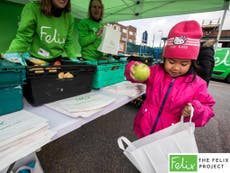
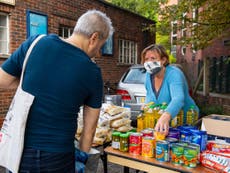
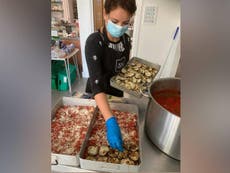
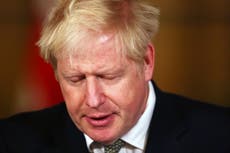
Join our commenting forum
Join thought-provoking conversations, follow other Independent readers and see their replies
Comments